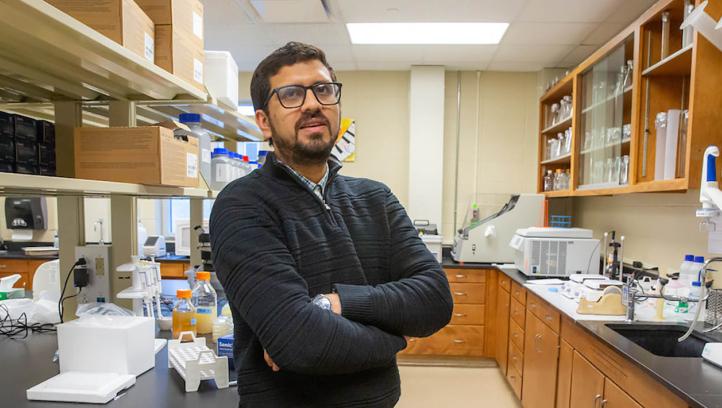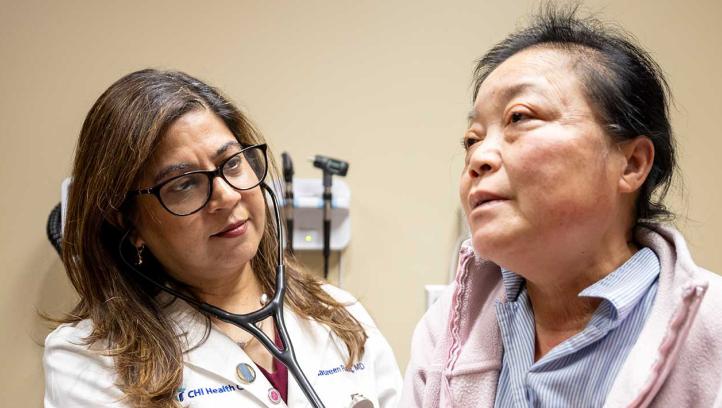
Faculty-student research team takes on stroke at Creighton

Understanding the process, or extent, of brain recovery after a stroke represents a crucial unmet need in medical practice, and Jee-Yeon Hwang, PhD, assistant professor in Creighton University’s Department of Pharmacology and Neuroscience, is conducting research designed to create new therapies to address that need.
With the assistance of a two-year, $145,000 grant from the National Institute of General Medical Sciences, a division of the National Institutes of Health, Hwang hope to contribute to improved recovery for the approximately 200,000 Americans who suffer disability related to reduced blood flow to the brain (global cerebral ischemia) every year.
Hwang involves undergraduate and graduate students in her research, along with post-doctoral fellows.
“Undergraduate students join the project in the summer or during semesters,” she says. “They will be trained by the mentor or senior scientists in the lab for basic experimental techniques and lab work related to the project.”
“Currently, we are also involving a postdoctoral fellow and a graduate student.”
Hwang is well known for her studies of neurological disorders and diseases, with other research delving into Huntington’s disease, Alzheimer’s disease and Parkinson’s disease. She was a contributor to “Stroke (7th Edition); Pathophysiology, Diagnosis, and Management,” described by its publisher as authored by “the world’s foremost stroke experts.”
The NIH/NIGMS study is titled “Neuroinflammation in neurodegeneration and cognitive impairment associated with global ischemia.” It seeks to identify new inflammatory processes causing stroke and study novel agents to improve outcomes in experimental models of stroke.
“While current emergency treatments focus on restoring cardiac function and blood flow, an effective therapeutic treatment for the neurodegeneration and cognitive deficits associated with global ischemia is a crucial unmet medical need,” Hwang says. “Emerging evidence shows that neuroinflammation plays a pivotal role and is a potential therapeutic target.”
Nevertheless, she says, current anti-inflammatory therapy has failed to significantly modify neurological deficits and so the development of new drugs and therapies remains critical.
Hwang’s research offers Creighton University students an opportunity to apply knowledge and experimental techniques learned in the classroom to real scientific research.
“They will learn experimental methods involved in molecular and cellular biology and chemistry such as RT-qPCR (Reverse transcription-quantitative polymerase chain reaction), Western blot analysis, cell cultures, animal surgeries, and brain tissue microdissection,” Hwang says. “They will also learn about data analysis and biostatistics.”
Research, of course, is an incremental thing, with knowledge generated by one research study providing the foundation of new studies. That process is very much underway in Hwang’s lab.
“This project has been developed from the previous research in our lab,” she says. “Using the data generated from this grant, we are also planning to submit an advanced grant to the NIH or to the American Heart Association.”












